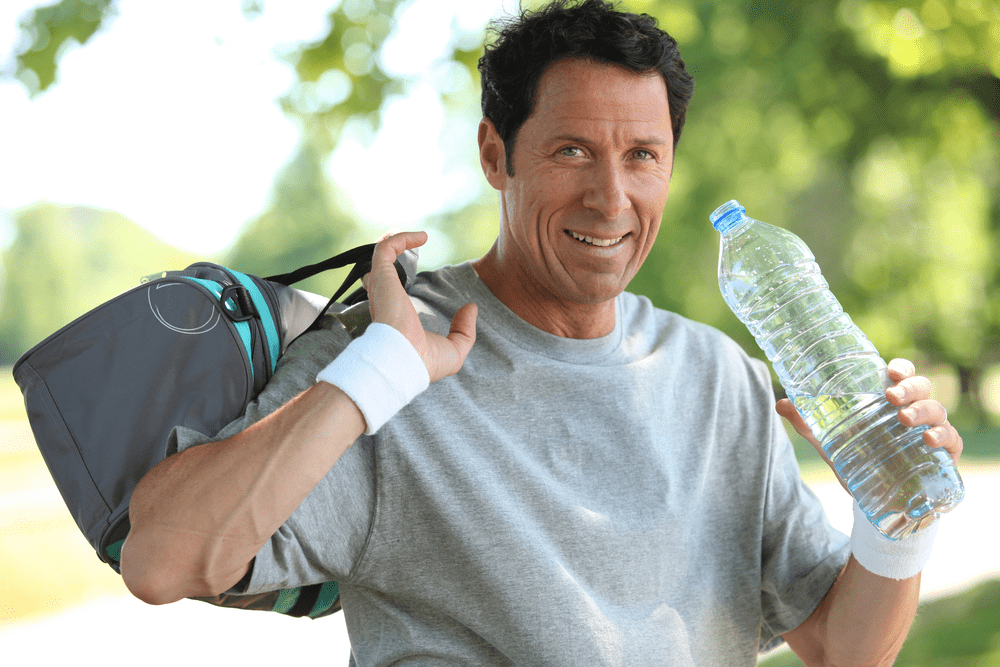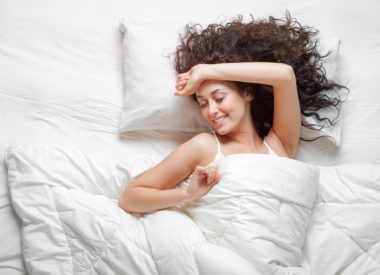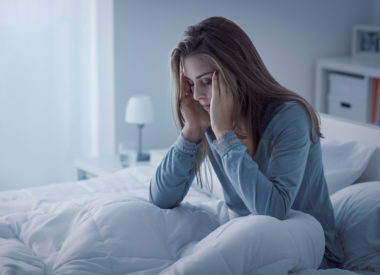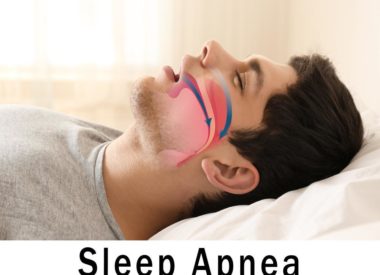Exercise Resolutions for Better Sleep
According to statistics, health-related lifestyle changes are consistently ranked among the top 5 New Years Resolutions Americans make each year. In January of 2016, for example, 41% of Americans vowed to live a healthier lifestyle, and nearly 40% expressed a desire to lose weight.
MakingExercise Resolutions for Better Sleep
Getting enough sleep should be an important action step for achieving each of those goals. After all, numerous studies have proven that sleep deprivation can lead to weight gain and obesity. In turn, being too heavy can contribute to diabetes, high blood pressure, sleep apnea, back pain, and many other health issues. Most of these problems further compromise the quality of your sleep, meaning you can soon be caught in a vicious cycle of downward-spiraling fitness.
The bottom line: not getting enough sleep or enough good quality, rejuvenating sleep makes it harder to achieve your health goals. If you’re like most Americans (shocking stat: only 8% of us ever achieve our New Years resolutions!), you probably wont improve your wellness or lose weight in 2017 unless you set out a specific, detailed plan that puts you on the path to success.
The good news is, you can boost both your physical fitness and the quality of your rest in a single lifestyle change: exercising to support sleep. By developing new workout habits that support sleep, you may see a boost to the quality of your shuteye in 2017 and that can help fuel your weight-loss and fitness efforts, too.
Best Exercise Habits for Improving Sleep:Work Out in the Morning or the Afternoon
According to the National Sleep Foundation (NSF), early morning is the best time to work out if you want to achieve a deeper nighttime sleep. Research shows that people who exercise at 7:00 A.M. spend more time in the restorative phases of sleep, including REM (the sleep phase where the body repairs the damage of the day). Early morning exercisers also tend to get measurably more sleep.
If you cant work out early or don’t want to, afternoon exercise routines have their perks, too. Cardio workouts later in the day raise your body’s core temperature for up to six hours afterward. When your temperature falls again, this change signals the body to get sleepy. Insomniacs: if you want to go to sleep at 10:00 PM, work out at 4:00 or 5:00 PM. You may fall asleep faster and stay asleep, avoiding those frustrating nighttime awakenings.
If the only time you can fit in exercise is in the evening, try to avoid stimulating cardio workouts that raise your core temperature. Calming, relaxing activities like yoga, tai chi, or gentle stretching are less likely to interfere with your sleep cycle. (If you must do cardio before bed, include an extended cool down and keep your bedroom cool to avoid overheating.)
Don’t Overdo It Exercise at a Moderate Level
Studies show that partaking in moderate-intensity cardiovascular exercise can help you to fall asleep faster at night and stay asleep longer. One study found that participants with chronic insomnia slept better on the nights they worked out at this level (as compared to days when they did not work out at all).
What is moderate-intensity exercise? Think of activities you can do while still carrying on a conversation. If
you’re short of breath or winded, you’re working too hard. But if you can sing while you’re working out, you need to pick up the pace or increase the resistance level.
Some examples of moderate-intensity cardio include:
- Ballroom dancing
- Biking (on level ground)
- Cleaning your house
- Gardening, yard work, or shoveling light snow
- Golf
- Hiking at a moderate climb or pace
- Jogging slowly (15-minute miles)
- Racquet sports at a low intensity (racquetball, tennis, badminton)
- Walking briskly
- Water aerobics
- Yoga
- These are relatively calm workouts that may not feel especially tiring while you’re doing them but they have a positive impact your sleep, more than vigorous exercise. In the previously mentioned study, the same insomniac participants who slept better after a single session of moderate-level exercise got no measurable sleep benefit from intense aerobic conditioning or weight lifting.
- This is great news for those of us who aren’t gym rats! Working harder may not be better. Climbing on the elliptical, dashing through 8-minute miles, or doing CrossFit may improve your health in other ways, but its not proven to improve your sleep.
Get outdoors
- If weather permits, move your workouts outdoors during daylight hours and you may see an additional boost in the quality of your nighttime sleep. Exposure to the sunlight helps to regulate your body clock, keeping you awake during the day and allowing you to get appropriately sleepy at night.
- For most of us, exposure to sunlight (even in the winter) is the single biggest factor affecting the regulation of our circadian rhythms. Our eyes have a direct connection with the area of the brain that regulates sleep hormones and wakefulness. Without adequate exposure to light during the day, your brain wont get the right cues. Exercising in daylight, especially in these dark, cold months, helps to ward off the release of melatonin mid-day. Morning or afternoon jaunts can help to keep you awake and alert. They also warm your core temperature and help to signal sleepiness at a more appropriate time about five to six hours after you’re done exercising.
- For example, in one 2011 study in Japan, researchers found that two hours of forest walking created a substantial improvement in sleep quality for participants with sleep complaints. On the days that they walked outside, study participants were able to stay asleep up to 20 minutes longer than usual. They also reported less restlessness.
Exercise regularly and never give up
For better sleep, how often should you exercise? 150 minutes per week (or 30 minutes per day, 5 days per week). In a recent survey of 2600 adults, those who met this minimum requirement reported that their overall daytime sleepiness decreased by 65%. They also experienced fewer leg cramps and had less trouble concentrating.
Achieving better sleep through exercise may not happen overnight (no pun intended!). Some studies indicate that the effects of regular exercise accrue gradually; it may take weeks before you see consistent results. Don’t give up! Even if you don’t sleep better right away, daily exercise is doing wonders for your health behind the scenes by reducing your risk of illness, strengthening your bone mass, and improving your mood and mental health.
Experts say the easiest way to make a routine stick is to continue it for at least three weeks. When picking a New Years exercise resolution that will boost your sleep, think in terms of simple, 10-minute chunks of activity that can add up to 30 minutes of exercise per day. Look for ways integrate movement into your life so you don’t get bored and give up before you see the sleep benefits.
Here are a few ideas:
- Take a morning walk before breakfast, or an early evening walk before dinner.
- Commute by bike or on foot.
- Park or get off the train or bus a mile before your stop. Walk the rest of the way.
- Take the stairs instead of the elevator.
- Hand-deliver messages to people in your office instead of using email or the phone.
- Walk to lunch.
- Bike or walk to run local errands.
By making daily movement a part of your life, you can establish a baseline of good health that protects your heart, your brain, your mood, and your sleep making all those other New Years resolutions much easier to tackle.
Sources:
Nielsen: http://www.nielsen.com/us/en/insights/news/2015/2015s-top-new-years-resolution-fitness.html
Forbes: http://www.forbes.com/sites/dandiamond/2013/01/01/just-8-of-people-achieve-their-new-years-resolutions-heres-how-they-did-it/#3ab99d90304c
BusinessWire: http://www.businesswire.com/news/home/20151229005116/en/%E2%80%98Enjoying-Life-Fullest%E2%80%99-2016%E2%80%99s-Top-Years-Resolution
National Sleep Foundation:
https://sleep.org/articles/exercise-time-of-day/
https://sleepfoundation.org/ask-the-expert/how-does-exercise-help-those-chronic-insomnia
https://sleepfoundation.org/sleep-news/study-physical-activity-impacts-overall-quality-sleep
Biopsychosoc Med. 2011; 5: 13.: https://www.ncbi.nlm.nih.gov/pmc/articles/PMC3216244/?tool=pubmed



